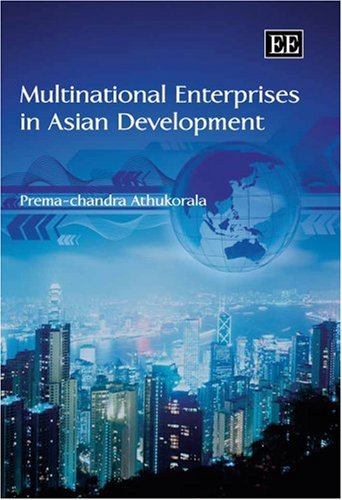

Most ebook files are in PDF format, so you can easily read them using various software such as Foxit Reader or directly on the Google Chrome browser.
Some ebook files are released by publishers in other formats such as .awz, .mobi, .epub, .fb2, etc. You may need to install specific software to read these formats on mobile/PC, such as Calibre.
Please read the tutorial at this link: https://ebookbell.com/faq
We offer FREE conversion to the popular formats you request; however, this may take some time. Therefore, right after payment, please email us, and we will try to provide the service as quickly as possible.
For some exceptional file formats or broken links (if any), please refrain from opening any disputes. Instead, email us first, and we will try to assist within a maximum of 6 hours.
EbookBell Team

5.0
48 reviews`This volume offers a wealth of information and insights into the roles of multinational enterprises in shaping recent economic developments in East and South Asia. These direct investments, which are now the dominant source of finance for the developing regions globally, are generally welcomed today, though this was untrue earlier. However, the cases in this volume draw out ways and contexts in which the greatest advantage may be sought from these capital inflows.' - Robert E.B. Lucas, Boston University, US
`Foreign direct investment by MNCs, once considered the bane of developing countries, is today a leading indicator of their relative success. The reality is more complicated, however, as this fresh assessment of the role of MNCs in Asia explains clearly and persuasively. This study is a major contribution to literature on the role of MNCs in developing countries, drawing heavily on the author's own original research on foreign direct investment in several Asian countries. What is the role of MNCs in developing countries and how has it changed over the past two decades? What are the cost and benefits to host developing countries of MNCs direct investment? What measures should developing countries take to attract MNCs? This book provides clear and convincing answers to these questions based on the kind of rigorous empirical analysis for which the author is renowned.' - James Riedel, The Johns Hopkins University School of Advanced International Studies, US
This book takes a fresh look at unresolved issues associated with the role of multinational enterprises and foreign direct investment in economic development in light of the experiences of developing countries in Asia.
Each chapter presents a self-contained treatment of a specific theme relating to the developmental implications of MNEs, encompassing the current state of the debate, and relevant theory and policy implications. The key aspects of MNE-development interface covered in the book include expansion of manufacturing exports, global integration through international fragmentation of production, research and development, productivity growth, susceptibility to and recovery from financial crises, macroeconomic adjustment and international competitiveness, and economic transition from plan to market.
Multinational Enterprises in Asian Development will prove a valuable reference tool for academics, researchers and students focusing on trade, development and international business. Professional economists and policy makers wishing to broaden their understanding of the role of MNEs as an integral part of the international development policy will also find much to interest them in this book.